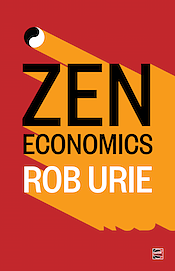As distressed and downright feeble as organized labor appears at the moment (and no one is going to pretend that 11% density across the board isn’t alarming), there are some things that can be done to re-energize and revitalize the Movement. We shall list them in order of ascending difficulty, beginning with the easiest.
But before we start, let’s be clear that our discussion will be non-ideological, which is to say, it won’t include Marx’s thoughts on a proletarian revolution. Indeed, it won’t touch upon anything remotely resembling the wonderful phantasm that more or less set everything in motion. Unfortunately, Marxian ideology has become more a revered relic than a template for future action.
Consider: Marx’s seminal “Das Kapital” was first published in 1867, two years after the end of the American Civil War. That was well before the incandescent light bulb was invented. That makes it ancient. Who knows? If Marx had lived to see the phenomenon of Henry Ford’s Model T (where workers could own the products they produced), he might have written an entirely different book.
As Thorstein Veblen noted, while Marx was ingenious at socio-economic analysis, when it came to Big Picture predictions, he was not only unreliable, he was often dead wrong. For one thing, he predicted the proletarian revolution would occur in a teeming industrial region, most likely London. Never did he dream it would occur in agrarian Russia, populated by peasant farmers.
And for another, Marx envisioned the working class eventually rising up against the ruling class. Which brings us back to Thorstein Veblen. Although he admired Marx, what most prevented Veblen from becoming a hardcore disciple was his belief that instead of attacking the ruling class—of overthrowing the ruling class—the proletariat would ultimately seek to emulate it. Arguably, Veblen turned out to be right.
Every man and woman I’ve ever known who toiled in a factory setting (and I’ve known hundreds) wanted their sons and daughters to rise above the so-called “working class,” and become management people. They wanted them to become bosses. To put it in ideological terms Marxists appreciate, they wanted their kids to break free of the “oppressed” and join the “oppressors.”
So our brief discussion will be practical, not ideological. It will center solely on the notion of union representation as resistance. Organized labor providing the resistance necessary to sustain a middle-class job. Resistance is everything. Without resistance, management has all the power. Without resistance, this whole thing regresses into an economic turkey-shoot.
Here are three things that could make a difference.
1. Provide Scholarships. This one is easy. As part of a national public relations campaign, the AFL-CIO should begin offering $1,000 college scholarships to five-thousand students a year. That amounts to $5 million a year, which should be no problem for the cash-rich House of Labor. Because everyone agrees that the future of organized labor resides with the young, it’s incumbent upon unions to begin a massive Youth Movement.
2. Enact the EFCA. Put everything we have into passing the EFCA (Employee Free Choice Act), a law which would allow workers to join a union simply by signing a card saying they wish to do so (a practice known as “card-check”). Libertarians and progressive Democrats should love this idea, as it moves us out of the confines of cumbersome and management-slanted certification elections into the liberating arena of “free choice.”
Management loves NLRB certification votes (which they can manipulate through stalling techniques and mandatory anti-union propaganda sessions), and hates the very idea of card-check. Passing the EFCA will be tough, but by emphasizing the libertarian “free choice” angle, it’s doable.
3. Revoke Taft-Hartley. By passing the Taft-Hartley Act (1947) business interests, which, in post-war America, were scared shitless by the stunning power and vitality unions had attained, effectively removed the fangs from organized labor. Even though Truman vetoed this clearly anti-union act, his veto was overridden by Congress. Understandably, revoking all (or even some) of Taft-Hartley won’t be easy.
In one stroke of the pen, Taft-Hartley deprived unions of their most valuable weapon: solidarity. Under T-H, secondary strikes and boycotts were now outlawed, strikers could be permanently replaced, strikes could be rendered illegal by order of the president if he felt they interfered with or threatened “national interests,” and so-called “right-to-work” states were made legal. It was the worst anti-labor law ever passed.
Clearly, organized labor faces a daunting task. But it’s far from hopeless. And to those who claim that unions are now so weak and ineffective that management no longer “fears” them, they need to be reminded that American businesses spend tens of millions of dollars a year trying to keep the unions out. Why? Because they dread resistance.











